Celebrating the Best in Research
The Center for Creative Leadership sponsors awards to stimulate outstanding field research and its creative application to the practice of leadership.
H. Smith Richardson, Jr. Visiting Fellow
2020-2021 H. Smith Richardson, Jr. Visiting Fellow
 Bernardo M. Ferdman, Ph.D. will serve as the Center for Creative Leadership’s (CCL®) H. Smith Richardson Jr. Visiting Fellow for 2020.
Bernardo M. Ferdman, Ph.D. will serve as the Center for Creative Leadership’s (CCL®) H. Smith Richardson Jr. Visiting Fellow for 2020.
For more than three decades, Bernardo has dedicated his research, teaching, and practice to creating an inclusive world in which more of us can be fully ourselves and accomplish our goals in ways that are effective, productive, authentic, and just. As a practitioner, he has worked with diverse groups and organizations across sectors – including businesses, NGOs, government, nonprofit, and educational institutions in the United States, Europe, Latin America, and Asia – to increase individual and collective effectiveness and inclusion.
The roles that Bernardo will play for CCL include:
- Advising our Equity, Diversity & Inclusion core team on our internal EDI journey.
- Serving as research advisor/thought partner (to generate one or more articles and help us develop a clear vision of our EDI research strategy for the next 3 years).
- Providing input on client-facing approaches to EDI.
Bernardo is distinguished professor emeritus of organizational psychology at the California School of Professional Psychology of Alliant International University, where he served as a core faculty member for almost 25 years. He now directs a new program on inclusive leadership for UCLA Anderson Executive Education, in addition to his full-time consulting and coaching practice. Bernardo has written numerous articles and chapters, made 300+ presentations, and conducted research on various aspects of inclusion. His 2014 book, Diversity at Work: The Practice of Inclusion (co-edited with Barbara Deane), provides a research-based understanding of inclusion. He is currently completing an edited volume, focusing on inclusive leadership, that is scheduled for publication in 2020.
Bernardo is president of The Diversity Collegium, Fellow of the American Psychological Association (and five of its divisions) and the International Academy for Intercultural Research. He is past Chair of the Academy of Management’s Diversity and Inclusion Theme Committee and its Gender and Diversity in Organizations Division, as well as past president of the Interamerican Society of Psychology. Bernardo serves as an expert panelist for Global Diversity & Inclusion Benchmarks: Standards for Organizations Around the World. Among his various awards is the 2019 Award for Excellence in Diversity and Inclusion Consulting from the Society of Consulting Psychology. Bernardo—a native Spanish speaker who immigrated to the U.S. as a child—earned a Ph.D. in Psychology at Yale University and an A.B. degree at Princeton University.
Bernardo’s professional path has intersected numerous times with CCL. He presented at our 1992 Leadership Diversity Conference, participated in our 1994 conference on Work Team Dynamics and Productivity in the Context of Diversity, and presented professional development sessions for us in 2015 and 2018. In 2010 and 2011, he conducted two-day “train the trainers” workshops for us on leadership across differences and on facilitating difficult conversations on inclusive leadership. His chapter on “Teaching Inclusion by Example and Experience: Creating an Inclusive Learning Environment” appears in the Facilitator’s Guide for Leading Across Differences (McFeeters, Hannum, & Booysen, eds.).
Previous H. Smith Richardson, Jr. Visiting Fellows
2016-17: Bob Johansen, Ph.D.
Distinguished Fellow – Institute for the Future
2014-15: Peter Ping Li, Ph.D.
Professor of Chinese Business Studies – Copenhagen Business School, Denmark
2012-13: Karen Stephenson, Ph.D.
President, NetForm International and Professor of Management – Erasmus University Rotterdam School of Management
2011-12: Jessica Payne, Ph.D.
Assistant Professor, Nancy O’Neill Collegiate Chair in Psychology, and Director of the Sleep Stress & Memory (SAM) Lab – University of Notre Dame
2010-11: Prasad Kaipa, Ph.D.
CEO – Kaipa Group, California
2009-10: Dharm P.S. Bhawuk, Ph.D.
Professor, Management and Culture and Community Psychology – Shidler College of Business, University of Hawaii
2008-09: Douglas T. Hall, Ph.D.
Professor, Organizational Behavior – Boston University
2005-06: Andrew Kakabadse, Ph.D.
Professor, International Management Development – Cranfield University
2004-05: Ellie Weldon, Ph.D.
Professor, Organizational Behavior – IMD International
2003-04: Michael Fullan
Dean, Ontario Institute for Studies in Education – University of Ontario
2002-03: Shalom Schwartz, Ph.D.
Professor, Department of Psychology – Hebrew University of Jerusalem
2001-02: Kathy Kram, Ph.D.
Professor, Organizational Behavior – Boston University School of Management
2000-01: Jay Conger, Ph.D.
Professor, Organizational Behavior – London Business School
Kenneth E. Clark Student Research Award
The Kenneth E. Clark Student Research Award recognizes outstanding unpublished papers by undergraduate and graduate students. The award named in memory of Kenneth Clark, a distinguished scholar and former president of CCL, is co-sponsored with the International Leadership Association (ILA). The winner receives a cash award and an opportunity to present the award paper in a colloquium at the ILA Annual Conference.
2023 Kenneth E. Clark Student Research Award Winner
CCL selected Hsuan-Che (Brad) Huang as the 2023 Kenneth E. Clark Student Research Award winner for his paper, “It’s All for Show”: Performative Allyship as Saying One Thing but Doing Nothing by Leaders. The Kenneth E. Clark Student Research Award recognizes outstanding unpublished papers by undergraduate and graduate students. The award is named in memory of Kenneth Clark, a distinguished scholar and former president of CCL.
 Hsuan-Che (Brad) Huang is a Ph.D. candidate in the Organizational Behavior and Human Resources Division at the Sauder School of Business at the University of British Columbia. His research program broadly focuses on morality, organizational justice, conflict management, and culture and diversity. Specifically, some of his current work addresses how third parties moralize others’ forgiving behavior amid workplace conflicts and how pretentious leaders signal their own virtuous moral compass by professing to be an ally in support of equity, diversity, and inclusion (EDI) in organizations.
Hsuan-Che (Brad) Huang is a Ph.D. candidate in the Organizational Behavior and Human Resources Division at the Sauder School of Business at the University of British Columbia. His research program broadly focuses on morality, organizational justice, conflict management, and culture and diversity. Specifically, some of his current work addresses how third parties moralize others’ forgiving behavior amid workplace conflicts and how pretentious leaders signal their own virtuous moral compass by professing to be an ally in support of equity, diversity, and inclusion (EDI) in organizations.
Coming from an interdisciplinary background, he holds a B.S. in Psychology (Summa Cum Laude) and Life Science, with two Certificates in Neurobiology and Cognitive Science and Psychology Research, from National Taiwan University. Beyond academics, he has been engaged in community volunteering work and transferred his research on conflict and forgiveness to society for a better, peaceful world. Anecdotally, he was a gamer and winner of several esports tournaments prior to his Ph.D.
The Award will be presented to Hsuan-Che (Brad) at the International Leadership Association (ILA) 25th Annual Global Conference held October 12th-15th in Vancouver, Canada.
Kenneth E. Clark Student Research Award – Call for Papers
2024 Call for Papers
The International Leadership Association (ILA) and the Center for Creative Leadership (CCL) are pleased to co-sponsor the annual Kenneth E. Clark Student Research Award to recognize outstanding unpublished papers by undergraduate and graduate students. The award is named in honor of the distinguished scholar and former Chief Executive Officer of the Center.
The winner of this year’s award will receive:
- $500 cash prize (to be share if there are multiple authors).
- An engraved Award along with a certificate suitable for framing.
- Complimentary Registration to present online by ILA in November 2024 – Exact date TBD
- Complimentary 1-year ILA membership.
- Recognition at the ILA conference and in various multi-media ILA publications.
Submissions may be either empirically or conceptually based. Multi-disciplinary approaches to research are welcomed. The paper should focus on some aspect of leadership or leadership development. Submissions will be judged by the following criteria:
- The degree to which the paper addresses issues and trends that are significant to the study of leadership,
- The extent to which the paper shows consideration of the relevant theoretical and empirical literature,
- The extent to which the paper makes a conceptual or empirical contribution,
- Articulacy in writing and presentation; and
- The implications of the research for application to leadership identification and development.
Please read submission requirements carefully.
Papers must be authored and submitted by graduate or undergraduate students only. All authors must currently be students or must have graduated within one-year prior to the submission deadline of 5PM EDT Wednesday, 15 May 2024. CCL staff and papers submitted to other CCL awards are ineligible. All entrants must:
Upload three PDF formatted documents (other document formats will not be accepted)
- The first PDF should only include the manuscript with the title of the paper on the first page. Do not include the author’s name or contact information.
- The second 2-3 page PDF should only include the abstract with the title of the paper on the cover page.
- The third PDF should be a letter on university letterhead from one faculty member certifying that a student wrote the paper and a short statement (150 words or less) conveying why this paper should receive the award.
All three PDF documents should be attached to the submission form and sent together. Separate attachments will not be accepted.
Papers are limited to 30 double-spaced pages, including title page, abstract, figures, tables, and references. Papers above this limit that are not completely doubled spaced are not be eligible for the Award and will not be reviewed. Papers should be prepared according to current edition of the Publication Manual of the American Psychological Association.
Papers will be reviewed anonymously by a panel of researchers associated with CCL. In the absence of papers deemed deserving of the award, the award may be withheld. Entries (accompanied by faculty letters) must be received by 5:00 PM EDT, on Wednesday, 15 May 2024. The winning paper will be announced August 1. The award will be presented virtually in November 2024. Exact date to be determined.
Submit entries: https://ccl.az1.qualtrics.com/jfe/form/SV_6KfP4fKLgIeRojA
Contact us at [email protected] if you have questions or need assistance.
Past Award Winners
2022 – Suyang Ye & Teng Zhao
2021 – Steven Zhou, Ph.D.
2020 – Sylvie Plante
2019 – Samantha A. Penney
2018 – Min-Kyu Joo
2017 – Aleka MacLellan
2016 – Kyoung Yong Kim
2015 – Deirdre P. Dixon
2014 – Emily Grijalva
2013 – Chenwei Liao
2012 – Taylor E. Sparks, Ph.D.
2011 – Brian C. Gunia
2010 – Dong Liu
2009 – Marisa Adelman
2008 – Hakan Ener
2007 – Robyn L. Brouer
2006 – Herman H. M. Tse
2005 – Franklin Kudo
2004 – Lisa A. Boyce
2003 – Marie Dasborough
2002 – Nathan J. Hiller
2001 – Tomas R. Giberson
2000 – Jeffrey C. Kohles
Leadership Quarterly Award
The Leadership Quarterly Best Paper Award, sponsored by the Center for Creative Leadership, is presented annually in recognition of the best published paper submitted during the previous year to The Leadership Quarterly. The annual award for best paper is presented jointly by CCL and The Leadership Quarterly. The award includes a citation, cash award and invitation to visit CCL.
2022 Leadership Quarterly Award Winner
Nisvan Erkal, Lata Gangadharan, and Erte Xiao are the 2022 Leadership Quarterly Award winners for their paper Leadership selection: Can changing the default break the glass ceiling?
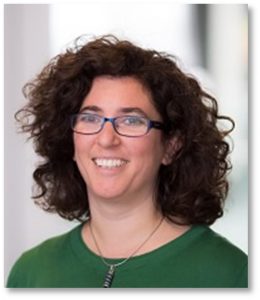
Nisvan Erkal is a Professor of Economics at the University of Melbourne and a Fellow of the Academy of the Social Sciences in Australia. Her fields of research are experimental economics and industrial organization. Her research focuses on how institutions shape human behavior and decision making. She studies how policies and institutions can be designed to overcome inefficiencies which arise from biased processing of information and strategic use of information. Her research has been published in Science, American Economic Review, European Economic Review, RAND Journal of Economics, and Journal of Public Economics. She serves as an Associate Editor for the Journal of Behavioral and Experimental Economics.
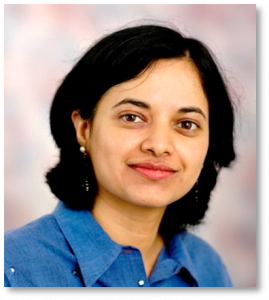
Lata Gangadharan is a Professor of Economics and Joe Isaac Chair of Business and Economics at Monash University. She is an experimental and behavioural economist. A key focus of her research has been on developing novel experimental methods to study economic and social institutions. Her research has been published in Science, Nature Communications, American Economic Review, Economic Journal, European Economic Review, Journal of Public Economics, Journal of Environmental Economics and Management, Experimental Economics and Journal of Economic Behavior and Organization. She serves as a Co-Editor at the Journal of Economic Behavior and Organization, an Associate Editor at Management Science, and the Journal of Economic Psychology. She is a Fellow of the Academy of the Social Sciences in Australia and is President-Elect of the Economic Science Association.
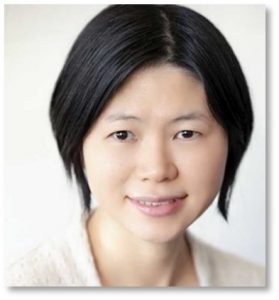
Erte Xiao is a professor in the Department of economics at Monash University. She conducts research to understand the motivational and behavioral consequences of extrinsic incentives and social preferences on decisions. She is currently the Asia-Pacific Vice President of the Economic Science Association. She serves as Associate Editor of the Journal of Economic Behavior and Organization and am on the editorial boards of Experimental Economics, Journal of Behavioral and Experimental Economics, and The Leadership Quarterly.
2021 Leadership Quarterly Award Winners
Sebastian Fest, Ola Kvaloy, Petra Nieken, and Anja Schöttner are the 2021 Leadership Quarterly Award winners for their paper How not to motivate online workers: Two controlled field experiments on leadership in the gig economy.
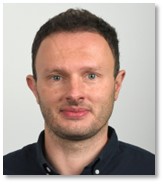
Sebastian Fest is data manager and head of the data infrastructure unit at the Centre for Experimental Research on Fairness, Inequality and Rationality (FAIR) where he organizes and builds research infrastructure. He also conducts research studying attitudes towards inequality, moral motivation, and gender differences. Sebastian has a background in experimental economics and holds a PhD in Behavioral Economics from the Norwegian School of Economics.
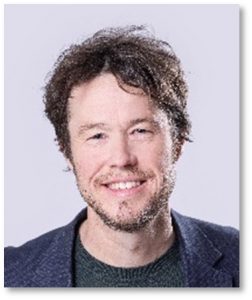
Ola Kvaløy specializes in the field of organizational economics and behavioral economics. He has worked extensively on incentive theory and contract theory, in particular trust-based relational contracts. He has also done experimental work on incentives, motivation and investment behavior. Kvaløy has been principal investigator in several large research projects, and has published his research in leading international journals such as American Economic Review, Management Science and Leadership Quarterly. Kvaløy is an op-ed columnist in the Norwegian business newspaper, Dagens Næringsliv, and sits in the editorial board of the economics festival Kåkånomics. He has also been member of two governmental expert committees on taxation and climate change, respectively.
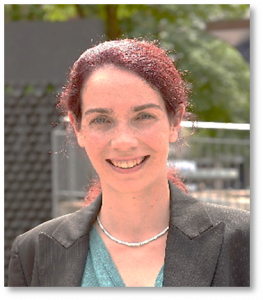
Dr. Petra Nieken is a Full Professor of Human Resource Management at the Karlsruhe Institute of Technology, Germany. Her research focuses on leadership, virtual work, incentives, and competition. She also studies new forms of work and the impact of artificial intelligence on the future of work. Dr. Nieken collaborates with companies and executes field and controlled lab studies to answer her research questions.
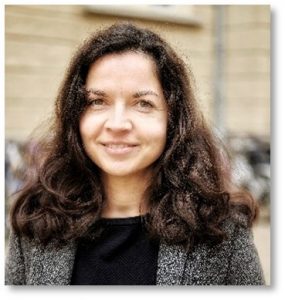
Anja Schöttner is Professor of Management at Humboldt University Berlin. Before, she was a professor of Organizational Economics at the University of Konstanz and an assistant professor at the University of Bonn. She received her PhD from Humboldt University Berlin. Her fields of research are organizational economics and personnel economics, with a focus on the effects of monetary and non-monetary incentive schemes.
George Banks, Thomas Fischer, Janaki Gooty, and George Stock and are the 2021 Leadership Quarterly Award winners for their paper Ethical leadership: Mapping the terrain for concept cleanup and a future research agenda.
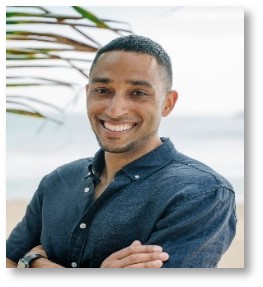
George Banks Chair of the Department of Management in the Belk College of Business at the University of North Carolina, Charlotte. He also currently serves as co-director of the new Center for Leadership Science and Deputy Title IX Coordinator to Academic Affairs. External to the university Dr. Banks is the Editor-in-Chief at The Leadership Quarterly and serves on the board of directors at The Center for Open Science. His research interests include leadership, strategic human resource management, as well as research methods and statistics (meta-analysis, data science, and open science).

Thomas Fischer is Associate Professor of Responsible Leadership at the University of Geneva and the Yearly Review Editor of The Leadership Quarterly. His research focuses mainly on the conceptualization and measurement of leadership. He also studies how people talk about their leadership and how they adapt their leadership behaviors to interpersonal and structural demands.
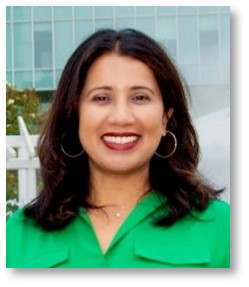
Dr. Janaki Gooty is a professor in the Department of Management in the Belk College of Business, and Organizational Science, an interdisciplinary Ph.D. program at UNC Charlotte. She currently serves as the Co-Director of the Center for Leadership Science, and Director of the MBA Program (BCOB) & Director, Dual MBA Program with EGADE Business School, Monterrey, Mexico. Her research focuses on inclusion, values/ethics, and the role of emotions in leadership at multiple levels of analyses. Specifically, she studies three phenomena that are deeply intertwined: 1) Creation of gender and race neutral definitions of leadership phenomena (e.g., identity, leader behavior, sense-making); 2) The role of emotions such as pride, anger, sadness or compassion in motivating followers to action and, 3) The creation of shared realities (i.e., vision) via leader espoused values and expressed emotions in leader-follower relationships. Her research has appeared in elite leadership and research methods outlets such as Organizational Research Methods, Journal of Management and Leadership Quarterly. Dr. Gooty currently serves as Senior Associate editor at Leadership Quarterly.
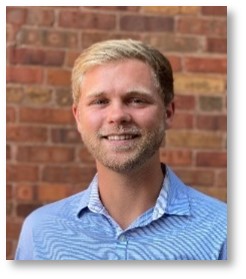
George Stock is a Ph.D candidate in Organizational Science at the University of North Carolina, Charlotte. He is also a Talent Assessment Consultant at Trane Technologies. His research has largely focused on simplifying leader behaviors from both a theoretical and application perspective. George’s dissertation explores conceptually and empirically the (in)effectiveness of values-based leader behaviors. His passion around this work ties back to helping organizations develop their current and future leaders to better serve stakeholders.
Past Award Winners
2020 – Stephanie M. Rizio & Ahmed Skali
2019 – Mats Alvesson & Katja Einola
2018 – Dr. Paulo Roberto Arvate
2017 – Dr. Kristen Cullen-Lester
2016 – Dr. George C Banks
2015 – Dr. Tiffany Keller Hansbrough
2014 – John Antonakis
2013 – Jan-Emmanuel De Neve
2012 – Dr. Pierre Balthazard
2011 – David Day & Hock-Peng Sin
2010 – John Antonakis
2009 – Dr. Dongil (Don) Jung
2008 – Dr. Ginamarie Scott Ligon
2007 – Dr. John J. Sosik
2006 – Dr. Joyce Bono
The European Journal of Work and Organizational Psychology Best Paper Award
The EJWOP Best Paper Award is jointly sponsored by CCL and the European Journal of Work and Organizational Psychology, and recognizes high-quality scholarly work on leadership and organizational effectiveness. Annual EJWOP awards are announced every two years, coinciding with the European Association of Work and Organizational Psychology International Conference held in May. The two authors receive a cash award and will present their papers at the EAWOP conference in Oslo, Norway.
2020 Award winner
 Jan Dettmers, Ph.D. is Professor for Work and Organizational Psychology at the University of Hagen (Germany). His primary areas of interest include the effects of job design on workers health and motivation and methodological issues of psychosocial risk assessment at work. Furthermore, his research focuses on work-home interaction and recovery in flexible and unregulated forms of work. He is the co-founder of the Agency for Evidence-based Job Design and Organizational Development (EVAO.org) and is member of the editorial board of Frontiers in Psychology. Read the abstract.
Jan Dettmers, Ph.D. is Professor for Work and Organizational Psychology at the University of Hagen (Germany). His primary areas of interest include the effects of job design on workers health and motivation and methodological issues of psychosocial risk assessment at work. Furthermore, his research focuses on work-home interaction and recovery in flexible and unregulated forms of work. He is the co-founder of the Agency for Evidence-based Job Design and Organizational Development (EVAO.org) and is member of the editorial board of Frontiers in Psychology. Read the abstract.
2019 Award winner
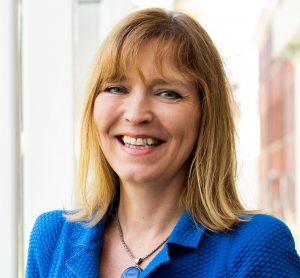 Barbara Wisse, Ph.D. is Professor of Organizational Behavior and Leadership Processes at the Department of Psychology, University of Groningen (The Netherlands). Her research focuses explicitly on (bright and dark sides of) power and leadership. This work includes topics such as ethics and morality, emotions, Dark Triad personality traits, abuse and misconduct, and the psychological effects of change. She serves on the editorial boards of The Leadership Quarterly and Journal of Leadership and Organizational Studies. Read the abstract.
Barbara Wisse, Ph.D. is Professor of Organizational Behavior and Leadership Processes at the Department of Psychology, University of Groningen (The Netherlands). Her research focuses explicitly on (bright and dark sides of) power and leadership. This work includes topics such as ethics and morality, emotions, Dark Triad personality traits, abuse and misconduct, and the psychological effects of change. She serves on the editorial boards of The Leadership Quarterly and Journal of Leadership and Organizational Studies. Read the abstract.
Past award winners
2018 – Dr. Catherine Haslam
2017 – Dr. Anna Steidle
2014 – Dr. Nadine Bienefeld
2013 – Dr. Remus Ilies
2012 – Dr. Aichia Chuang
2011 – Elizabeth Hobman
2010 – Barbara Künzle
2009 – Prof. Dr. Deanne N. Den Hartog
2008 – Dr. Jennifer L. Sparr
2007 – Dr. Jörg Felfe


